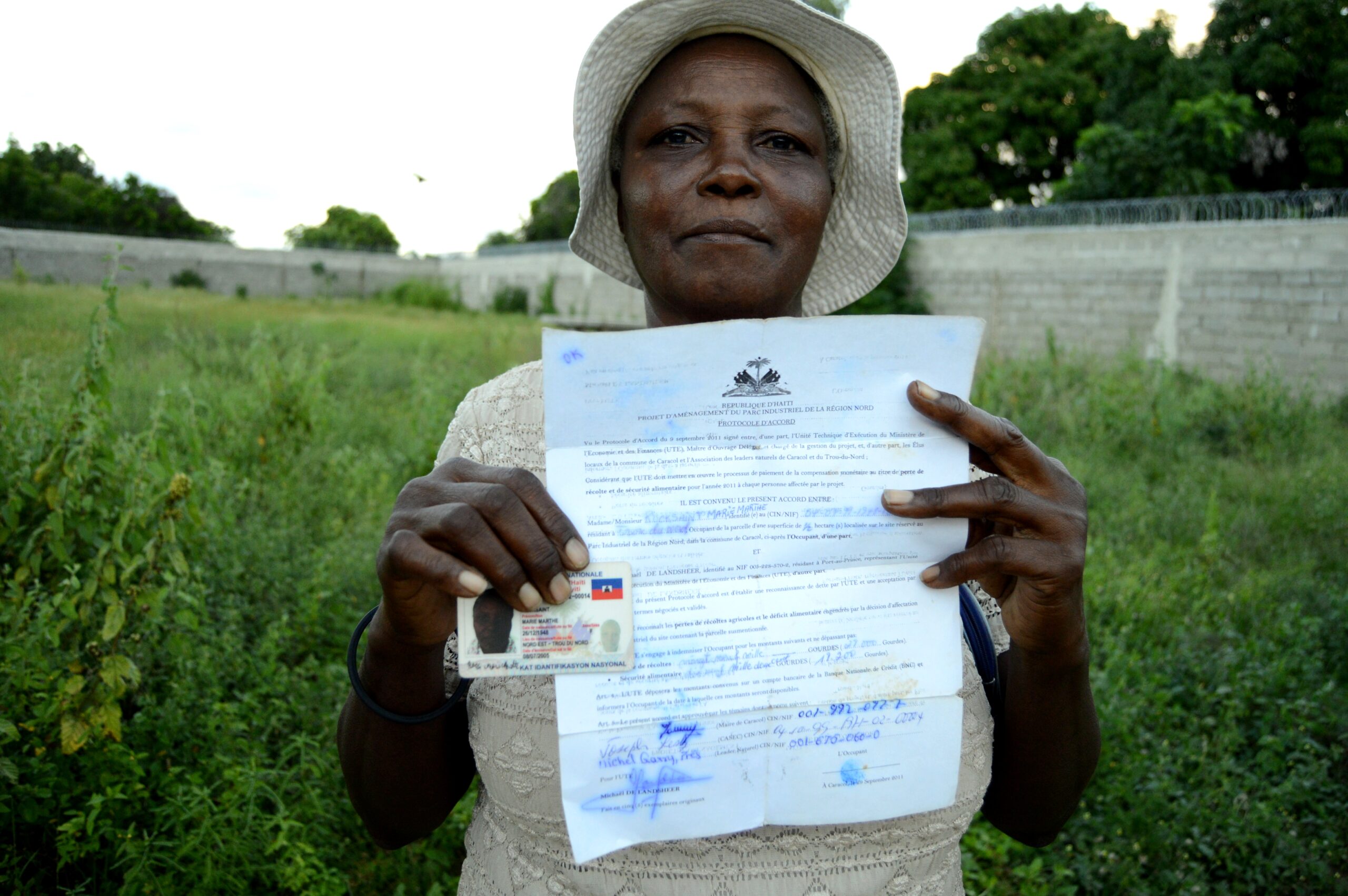ARC and Accountability Counsel co-hosted an in-person panel event discussing how displaced Haitian peasants used an international accountability mechanism to fight for remedy. The event launched Accountability Note 13, “After the Agreement: Implementing Remedy for Displacement in Northern Haiti” in Kreyol, Spanish, and English.
Monday, October 28, 2024
In January 2011, over 400 families in Northern Haiti were displaced from their farmland to make way for the Caracol Industrial Park. Against all odds, and after years of effort, they succeeded in negotiating an agreement through the Inter-American Development Bank that promised to restore their livelihoods. But the signing of the agreement was only the beginning of another struggle for implementation. Though many families have received their promised benefits, including replacement land, challenges remain.
As implementation of the agreement drew to a close, this panel discussion reflected on this remarkable case and the lessons it holds for accountability advocates and development actors worldwide.
On two panels, a diverse range of speakers shared insights on the Haitian grassroots organizing at the heart of the case, the advantages and challenges of pursuing dispute resolution at international financial institutions, and the experience of implementing a remedy agreement in a country context of fragility and violence.
Panel Moderators:
Scott Freeman, American University
Megan Pearson, Accountability Counsel
Welcoming remarks:
David Hunter, American University, Washington College of Law
The Caracol project and displacement in the context of Haiti
Jake Johnston, Center for Economic and Policy Research
Koldo Echebarria, Center for Global Development, Former Country Director IDB Haiti
Castin Milostène, AREDE Haiti
Megumi Tsustui, Accountability Counsel
The IDB complaint process, outcomes, and lessons
María Camila Barriga, Independent Consultation and Investigation Mechanism, IDB
Samer Araabi, Accountability Counsel
Castin Milostène, AREDE Haiti

Marie Marthe Rocksaint, a smallholder farmer, was forced to leave her land when construction of the Caracol Industrial Park, largely funded by the Inter-American Development Bank and USAID, began.
Hers was one of 422 families that lost their land when the park was given the go-ahead.
Image by Marilia Leti/ActionAid


